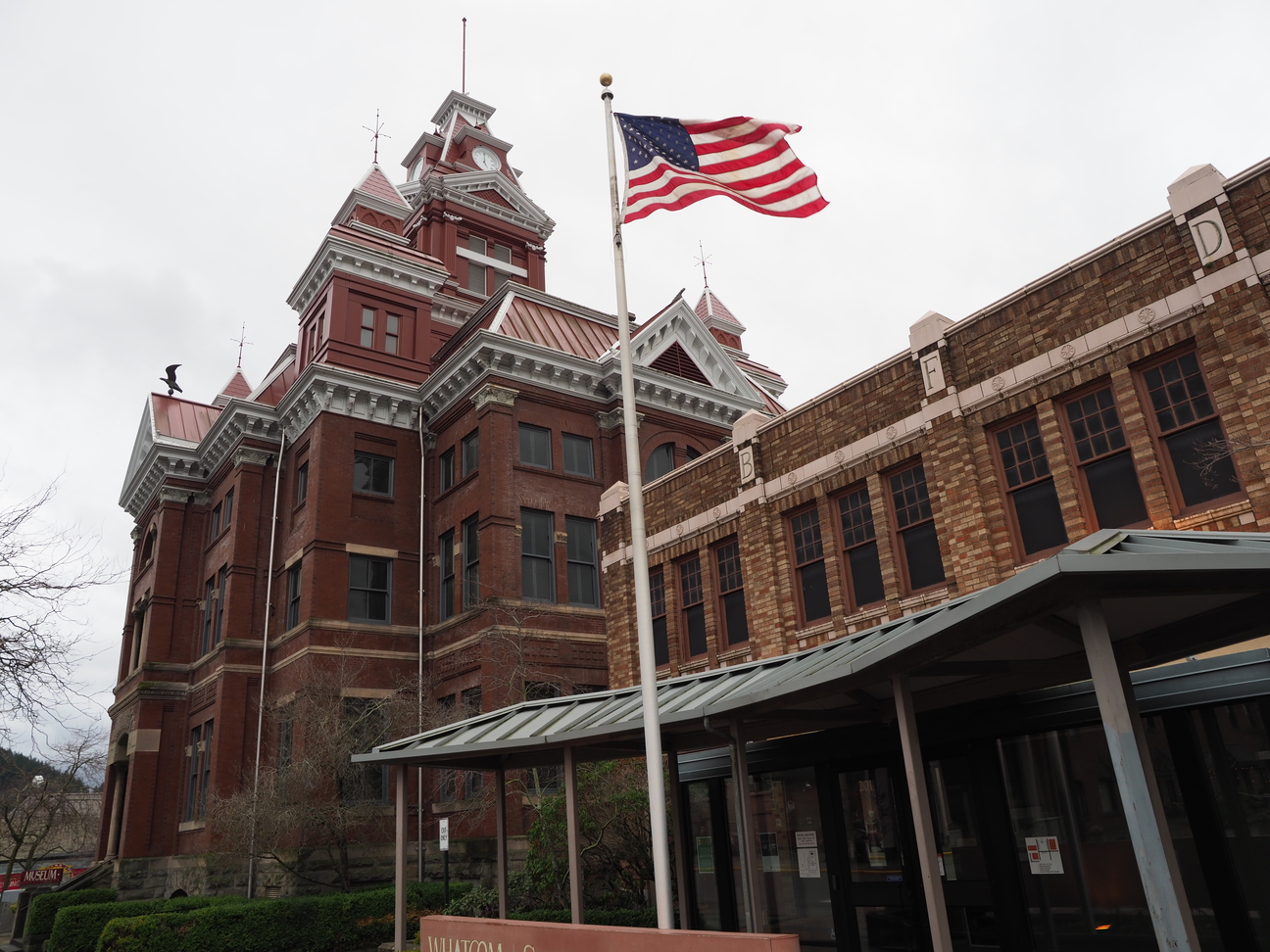The “Fourth Corner” of the lower forty-eight states will likely keep a 4–3 progressive majority on the Whatcom County Council, a legislative body that recently extended a moratorium on new refineries, shipping terminals and coal-fired power plants at the Cherry Point industrial area north of Bellingham.
The key race, for an at-large seat, has Council Chair Barry Buchanan with a seven percent lead over conservative-backed challenger Kamal Bhachu, initial November 2nd election returns suggest. A notable progressive on the Council, Western Washington University elections expert Todd Donovan, ran unopposed.
The Council’s moratorium at Cherry Point has left this Bellingham native wide-eyed at what’s happened to a county once nicknamed “Wide Open Whatcom.”
I can remember local officials groveling in the mid-1960’s when Intalco Aluminum was lured to build a giant smelter at Cherry Point, whose pollutants would quickly kill off the holly farm owned by the family of a Bellingham High classmate.
But life in the Fourth Corner has changed in the years since.
When I was growing up, candidates for Blossom Time Queen would tell the Bellingham Herald that their ambition was to get out of Bellingham.
Nowadays, however, Bellingham makes magazines’ top-ten lists of the country’s most livable cities. The downside: Higher housing prices.
The politics have changed as well. The 2018 and 2020 elections saw Democrats flip two Republican-held 42nd District seats in the state House of Representatives. State Sen Doug Ericksen, R‑Ferndale, Cambodia’s lobbyist in the United states and the fossil fuel industry’s man in Olympia, survived in 2018 by a margin of forty-five votes. The Democrats are certain to target his seat next year.
Whatcom County has, in the past sixty years, been site of and nearby witness to several of Washington’s seminal land use battles.
Chicago Bridge & Iron, in the 1980’s, wanted to use Cherry Point to build oil drilling platforms for use in Alaska’s Beaufort Sea. Its site was directly atop where nearly half of the state’s herring stock spawn, herring being a principal food for our endangered Chinook salmon. Faced with a furious lobbying effort Governor John Spellman, our last Republican chief executive, vetoed CG&I’s plans.
The past decade saw a major struggle over the proposed Gateway Pacific coal export terminal. Its developers mobilized support from business groups and labor, hired a respected civic leader to front for the project, and lined up former Democratic congressional aides as lobbyists.
One problem: Bellingham didn’t want it, particularly the mile-long coal trains that would pass through the city en route to Cherry Point. Hundreds lined up to get into a Bellingham City Club lunch where Gateway Pacific was debated. Seattle’s then-Mayor Mike McGinn was star attraction at protests against coal trains that would pass through Seattle, Mukilteo, Edmonds, Everett and Marysville.
Ultimately, the U.S. Army Corps of Engineers denied a permit for the project, citing its disruption of the Lummi Nation’s exercise of its fishing rights. The Lummis used to be a picked-on presence in Bellingham.
Now they are a regional economic and political power.
“We’re going to make this place into another Pittsburgh,” the director of the Whatcom County Economic Development Council once boasted to my journalist mother.
Not so.
Just as Pittsburgh is a city transformed, so Bellingham has changed. The pulp mill, which made waters of Bellingham Bay look like tobacco spit, is history.
Alcoa, owner of the old Intalco smelter, shut it down in the summer of 2020 due to falling aluminum prices.
The smelter had lost $24 million in the first quarter of the year.
The political fights between pro-development and conservation-minded locals have lasted for years. Once a bastion of crony capitalism, the Bellingham Port Commission has become scene of hot contests. In early results from Tuesday, progressive-backed incumbent Michael Shepard led with 55% of the vote for one seat, which conservative incumbent (and Republican activist) Ken Bell led the progressives’ Kelly Krieger by 54.6% to 44.3% for the other seat.
The Bellingham City Council, meanwhile, will welcome two Black members for the first time in its history. Skip Williams, a retired music teacher and longtime civic activist, was running unopposed for the Ward 4 seat. Progressive-supported Kristina Michelle Martens and Russ Whidbee were in a tight race for an at-large seat on the Council. Both are African American.
Four ballot initiatives were on the Bellingham ballot. The city was rejecting a ballot measure providing $4 an hour hazard pay for hourly and gig workers during states of emergency, with employers required to give good faith estimates of weekly working hours. A second measure, requiring landlords to give ninety days’ notice on no-cause evictions, was also losing in initial returns.
Two other measures were running ahead, albeit narrowly. One would ban police from using facial technology and predictive policing technology. The other would block spending of any city money to block unionization.
“Wide Open Whatcom” has given way to very wide-open politics.
When I was a kid, city politics were dominated by a group of industrialists and business folk known as the “Mill Street Mafia.”
Pulp mill brass had a lordly presence.
The Puget Sound Pulp & Timber Company wrote the Bellingham Chamber of Commerce statement opposing a Glacier Peak Wilderness Area in the Cascades. There was even an abortive move to welcome a move north by the Navy’s infamous Port Chicago ammunition dump from its hazardous Bay Area home.
The city and county have acquired a sense and value of place. The Gateway Pacific lobby was astounded at the City Club turnout, and that both candidates for Mayor of Bellingham were hostile to the gigantic coal export terminal.
I was very proud of the old hometown that day.

